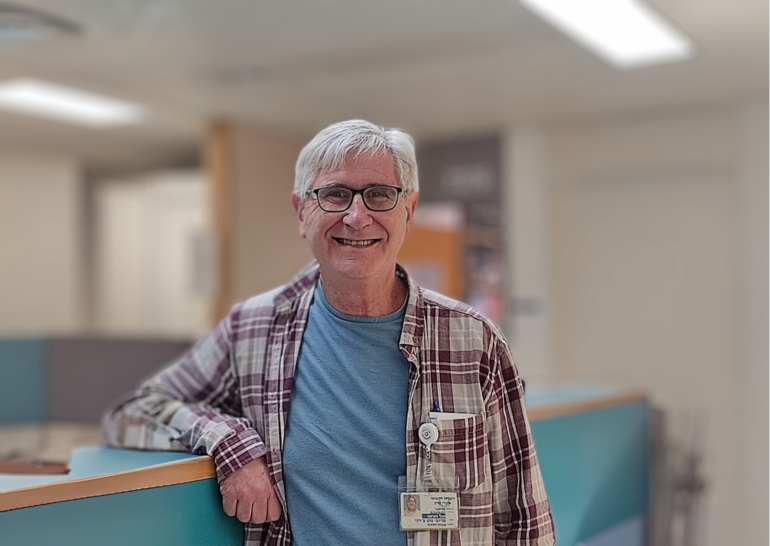Collaboration is needed to advocate for resilient healthcare systems that can navigate crises and deliver high-quality care to patients with cancer, even in the most trying circumstances
Financial limitations, inadequate healthcare infrastructure and shortages of vital medical supplies can significantly hinder a healthcare system's ability to deliver care effectively. These constraints might result from budgetary limitations, economic pressures or political decisions. The consequences can be devastating, affecting patient access, the quality of care and overall system resilience.
The two major global crises of our time – climate change and the epidemic of noncommunicable diseases (NCDs) – both erode gains in health, development and quality of life, hitting poor and marginalised people the hardest. There is clear evidence that global warming beyond 1.5°C degrees will have devastating health impacts all over the world; however, the consequences will be worst in regions and areas that are highly vulnerable to climate change, such as small island developing states (SIDS). In most SIDS, the rise in temperature will result in increased morbidity and premature mortality from NCDs, and from climate-sensitive infectious diseases; some SIDS will become unliveable.
The World Health Organization (WHO) plays an essential role in supporting countries to respond to, and recover from, emergencies with public health consequences i.e. disease outbreaks, disasters and humanitarian crises. We have learnt that health systems must be resilient and that that resilience can be defined as the capacity of health actors, institutions and populations to prepare for, and effectively respond to, crises; to maintain core functions when a crisis hits; and, informed by lessons learned during the crisis, to reorganise if conditions require it. The COVID-19 pandemic was a wake-up call where people at risk and living with NCDs, including cancer, were unprotected, undiagnosed, untreated and at higher risk of dying and where building of resilient health systems is core to any preparedness.
Health systems are resilient if they protect human life and produce good health outcomes for all during a crisis and in its aftermath, delivering benefits and positive health outcomes every day. To do this, health systems need to be aware of potential health threats and risks to the population, be able to address diverse health needs, be able to contain and isolate health threats while delivering core health services, bring together diverse actors, ideas, and groups to formulate solutions and initiate action and be adaptable. This requires universal healthcare coverage with primary healthcare coverage as its foundation. A resilient health system avoids propagating an initial or ongoing instability throughout the system by identifying and isolating a threat quickly. Pre-existing legislation and cooperative agreements should be in place to make sure all stakeholders are included. Finally, any adaptations should enhance performance in the short term and, ideally, contribute to building long-term. Too often the humanitarian response to health emergencies has a short half-life, leaving little discernible benefit for the larger health system post crisis.
The crises we are currently facing have profound implications for individuals with cancer, from delayed diagnoses and treatment disruptions to resource allocation challenges and workforce burnout. Addressing these implications requires a multi-faceted approach that prioritises the continuity of cancer care, innovative strategies to mitigate delays and support for healthcare professionals. At WHO, our commitment is to work collaboratively with member states, partners and stakeholders to advocate for resilient healthcare systems that can navigate these challenges and deliver high-quality care to patients with cancer, even in the most trying circumstances.
There are strong political commitments to prevent and control NCDs, including cancer. The member states have made important decisions in World Health Assemblies and during UN General Assemblies, and WHO has developed guidance to support the work on prevention and control for NCDs including strengthening financial protection through universal health coverage. We need to decrease the burden of cancer by reducing modifiable risk factors like tobacco, alcohol, physical inactivity and unhealthy diets, as well as reducing environmental factors, social and commercial determinants of health. The oncology workforce has a strong role to play in applying these public health measures. In turn, global organisations such as WHO, ESMO and scientific societies have a crucial role to play in supporting the oncology workforce. They can facilitate knowledge sharing and collaboration among healthcare professionals on a global scale. This includes disseminating best practices, guidelines and research findings related to oncology care during crises. Additionally, these organisations can advocate for policies that enhance the resilience of healthcare systems, such as increased investment in healthcare infrastructure and resources as well as innovative ways to deliver healthcare.
Patient education and empowerment such as providing patients with clear information about their conditions, treatment plans and potential disruptions can help patients actively participate in their care. Empowered patients are better equipped to navigate healthcare challenges and make informed decisions about their treatment. Another vital step is the implementation of multi-disciplinary care teams. Collaborative teams comprising oncologists, nurses, social workers and palliative care specialists can enhance patient care during crises. Such teams can work together to provide comprehensive support, address the psychosocial needs of patients and ensure continuity of care.
The oncology workforce should be invited to co-create solutions both during crises and in the prevention and control of cancers. We need all hands-on deck to improve both during crises and beyond.
Don't miss:
Mikkelsen B. Healthcare in times of crises. ESMO Congress 2023
Keynote Lecture, 22.10.2023, h. 12:00 – 12:30, Barcelona Auditorium – Hall 9





